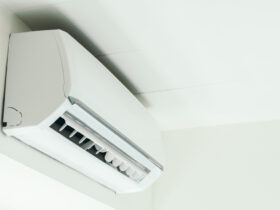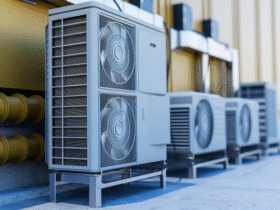Having hot water in your home is a luxury many people don’t give much thought to until there’s none of it when you open the tap. The average Australian home makes use of water system to provide and store warm to hot water. These systems can range from electric, gas, solar, or heat pump variations.
These systems allow for a continuous flow of water, often heating it as it’s needed. Gas and electric systems are the most common as they allow you to be connected to the council mains. No matter the quality of your system, there may come a time when you’ll need a hot water system repair or replacement. That said, it’s essential to know what signs indicate a potential issue with your system.
Know When Your Water Heater is Acting Up
There are some maintenance aspects around your home that you’ll routinely do. However, some issues are usually pushed into the “leave alone” category until there’s an emergency. This usually has to do with the costs associated with water heater replacements.
However, it’s essential to point out that timely repairs are usually considerably cheaper than a complete replacement. With this in mind, it’s always recommended that you know what signs indicate that you may be dealing with a potential heater issue. Here’s what you should be looking out for.

1. Unstable Water Temperatures
One of the more common signs to look out for is a fluctuation in water temperature. Ideally, your water heater should always have a consistent temperature and not move between extremes. When your water is either very cold or scalding, it’s a sign that there could be an issue with the thermostat or heating element. Keep in mind that both of these components are considerably cheaper and easier to repair than replacing an entire hot water system.
2. Funny Sounds
Since your hot water system works with both hot and cold water, it’s not uncommon to hear the occasional sound coming from the unit. Despite this, you should listen for strange sounds that you may not have heard coming from the unit before. These can include banging, rattling, clunking, or even hissing sounds. When you hear these types of sounds, it’s important to call your plumber immediately.
3. Leaks and Drips
The most ominous sign of a severe issue with your water heater is, without a doubt, water leaks and drips under or around the system. When this happens, you will need to call an emergency plumber as it’s usually an indication of system failure.
Not only can this lead to severe water damage to the surrounding flooring, but it can also lead to electrical shock if there are cables or power strips lying near the area that’s getting wet. Be sure to switch the water off and use a towel or blanket to dry up excessive leaking while you wait for the plumber to arrive.
4. Rust Coloured Water
Another clear indication that you’re dealing with a potentially faulty water heater is the appearance of rust coloured water. This can be a result of old, rusty components that are causing pieces of rust to fall into the water. Here, you may even notice a strange metallic smell when you open the taps.
In less severe instances, the rust and murkiness may clear up when the water has been running for a few minutes. Don’t regard this as a small issue, as it more than likely only means that the problem is just starting. Speak to your plumber for a complete assessment of your water heater. As we’ve mentioned, replacing a few minor components at this point may save you from having to deal with costly repairs later on.
5. An Old Hot Water System
The average hot water system in an Australian home lasts between eight and fifteen years. This, of course, depends on how well it has been maintained over the years and how routinely faulty components have been replaced. The quality of the water in your area can also have an effect on longevity.
Factors such as an increase in demand, such as a growing family, can add to the pressure an older water heater may already be experiencing. Older components that haven’t been exchanged or replaced over the years can contribute to overall system failure.
If your system hasn’t been repaired or components replaced, it’s a good idea to speak to your local plumber about a full system assessment. They will review all the current components as well as service the unit. This can also involve replacing the thermostat and heating elements with energy-efficient components.
Speak to your plumber about potential upgrades if you are using more hot water than previously. This will go a long way to ensuring that your hot water system repairs aren’t too costly.
Final Thought
Fortunately, a water heater doesn’t have to be replaced at the first sign of an issue. Some signs can easily be resolved by replacing a single component. This, in turn, also minimises the likelihood of costly system replacements down the road. Use our guide to help you identify signs in time.









Leave a Review